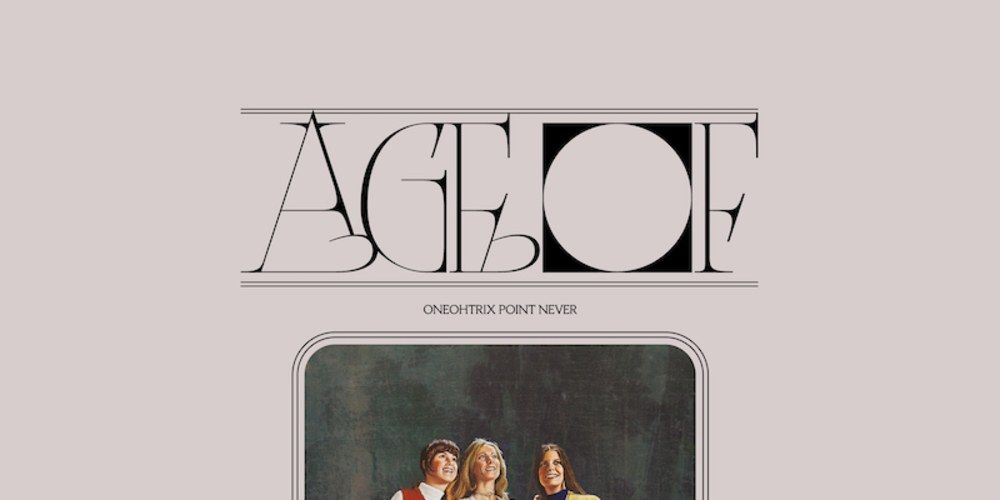Oneohtrix Point Never release full-length ‘Age Of’

Oneohtrix Point Never
Age Of
Warp Records · June 1, 2018
Oneohtrix Point Never’s latest release, Age Of, consistently straddles the line between engaging and over-stimulating throughout its 40 minute run-time— and finally comes to a consensus of a chaotically intriguing sound.
Oneohtrix Point Never — real name Daniel Lopatin — has been around for what feels like forever. Over his ten full-length albums, Lopatin has created a reputation for himself as one of the most intriguing voices in experimental electronic music. On Age Of, however, Lopatin makes a change from what we might expect of him. In contrast to his previous endeavors, which have remained mostly or entirely solo undertakings, Age Of is largely collaborative, featuring artists including James Blake, Anohni, Kelsey Lu, and Prurient. What’s also surprising is how vocals take the driver’s seat on many of the album’s songs, with Lopatin’s own voice as lead vocals on four songs — the first time he’s done so since 2010’s Returnal. That it’s different is probably the first thing that comes to mind listening to Age Of, but it doesn’t end up being the last.
Lopatin’s choice to depart from his normal style ends up holding both positive and negative consequences for the album as a whole. While Age Of’s chaotic nature and disjointed structure is entertaining at times, it’s also sort of distracting, and it’s hard for a listener to wrap their head around the album in its first half. One might say that this is Lopatin’s apocalyptic album, aligned with the recent pessimism that the current political climate has brought out. It shows in the way the album frequently feels as though it’s interrupting itself, abruptly ending songs and jolting the listener with fast, fractured transitions. It’s a challenging, cerebral listen; not the kind of album you would put on as background music, but rather an album that consistently dismantles and then recalibrates itself. It commands your whole attention, for better or for worse — which is perhaps intentional, looking at the album’s cover, which depicts three women in 70s clothing overlooking a glowing MacBook. I don’t really know how else to interpret that other than as a haughty critique of the way our culture consistently becomes increasingly steeped in technology; an anachronistic study of how society has changed over not much time at all. Perhaps it’s trite, but Lopatin clearly believes it needs to be said.
From there, there’s Lopatin’s vocals to address. They’re roboticized, as is generally becoming popularized in experimental, which might be why it feels kind of exhaustive. It’s wholly reminiscent of Bon Iver’s 2016 album 22, A Million — an album that I probably wouldn’t use any other word to describe than “fine,” as in I won’t be actively annoyed if I hear it at any given point, but I won’t ever seek out another listen. That’s not to say that the album doesn’t more than bounce back from Lopatin’s less-than-exciting vocal performances. The tracks in which Anohni steps up for vocals are brilliant, particularly ‘Same’ and ‘We’ll Take It,’ which are probably the best songs on the album full-stop. Her voice is authoritative and disarming, managing to breakthrough the general instrumental chaos to be a strong driving force on whatever song she enters. It’s also not coincidental that every song Anohni is on (other than ‘Black Snow’) falls squarely into Side B of the album, a side that’s a lot more engaging and fast-moving. I wouldn’t say Side A of the album does nothing for me, but I’d be a lot more likely to skip down to ‘Warning’ — where I personally feel the album start to shift — and start listening from there when I return to this album. The first few tracks could be described as “slow-build,” but it’s the sort of slow-build that is genuinely too slow to be very engaging at all, save for Lopatin’s expert sound design and production.
Overall, Age Of is an ambitious endeavor from Lopatin that is largely well-executed. It’s an album I will certainly find myself revisiting, and for now, it has more than enough going for it to keep it in my daily rotation. While Age Of is one of Lopatin’s more challenging (and less accessible) works, this ends up working in its favor. Age Of isn’t meant to be easy-listening, and it’s certainly effective in problematizing what listening to music is even meant to be. It’s not always entertaining, and it can (and maybe should) break boundaries. Out of chaos comes something incredibly alluring.